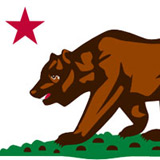Why ‘Class Warfare’ Is Winning
Economic and Political Policies to Help One Percent–Triggered 99 Percent Protests
All you need to know about the political impact of the burgeoning “Occupy [Your Town’s Name Goes Here]” movement is that it’s starting to make Karl Rove nervous.
Rove’s concern is reflected in a new memo distributed to allies of American Crossroads, the megabucks corporate campaign organization founded by the alpha strategist of Republican conservatism.
In the memo, the group’s director cites new polling data showing widespread support for President Barack Obama’s push for higher taxes on the rich, a presidential proposal that taps into populist anger over the nation’s huge wealth-equality gap, which is fueling economic protests across the country.

“It may be the result of larger environmental conditions, or he may be moving the needle himself, but Obama’s ‘tax the rich’ mantra is getting traction,” says the document, made public by the liberal Web site Talking Points Memo. “Our poll found that 64 percent favor raising taxes on people with incomes above $200,000.”
As a political matter, the finding is significant as a small piece of hard evidence suggesting that the themes of the protests, which began last month as Occupy Wall Street, are moving into the mainstream. Having spread to at least 900 cities, according to the Washington Post, the protests have focused largely on the vast financial disparity between America’s wealthiest one percent and the other 99 percent of the population, and the ways in which Washington’s economic and tax policies in recent decades have disproportionately benefited the elite.
Until recently, the inequality issue — the top one percent of Americans now account for 25 percent of the nation’s annual income and about 40 percent of its overall wealth — was hardly discussed beyond left-wing political circles and graduate economics seminars, as the GOP/Fox News set simply and successfully dismissed the matter as “class warfare” fomented by extremist enemies of capitalism.
Amid the worst U.S. downturn since the 1930s, however, upset is growing as most of the country struggles with chronic unemployment, foreclosures, and record poverty, while the super-rich get richer and Wall Street salaries and bonuses soar.
Analyzing the data behind these conditions, financial analyst Henry Blodget recently highlighted an extraordinary confluence of economic factors that are changing the terms of political debate:
• The current sustained level of high unemployment is the worst since the Great Depression.
• Corporate profits are at an all-time high, both in absolute dollars and as a share of the economy.
• Wages as a percent of the economy are at an all-time low.
“In other words,” Blodget wrote on the influential Business Insider site, “corporate profits are at an all-time high, in part, because corporations are paying less of their revenue to employees than they ever have … the owners of the country’s assets (capital) are winning, everyone else (labor) is losing.”
As a practical matter, the current divide between the extremely wealthy and everyone else is not only greater than at any time since the 1920s but also much larger than in many other developed nations.
“All the growth in recent decades — and more — has gone to those at the top,” the Nobel Prize–winning economist Joseph Stiglitz wrote recently. “In terms of income equality, America lags behind any country in the old, ossified Europe that president George W. Bush used to deride.
“Among our closest counterparts are Russia with its oligarchs and Iran. While many of the old centers of inequality in Latin America, such as Brazil, have been striving in recent years, rather successfully, to improve the plight of the poor and reduce gaps in income, America has allowed inequality to grow.”
Now, “99 Percent” activists are gaining attention — from the media, the political establishment, and voters. Their efforts for now remain an anarchistic collection of unaffiliated protests without a program for action, however, and it is unclear if they will evolve into a true progressive political force.
What is clear is that the economic forces driving the protests have potentially profound political implications. Stiglitz again:
“The top one percent have the best houses, the best educations, the best doctors, and the best lifestyles, but there is one thing that money doesn’t seem to have bought: an understanding that their fate is bound up with how the other 99 percent live. Throughout history, this is something that the top one percent eventually do learn. Too late.”



